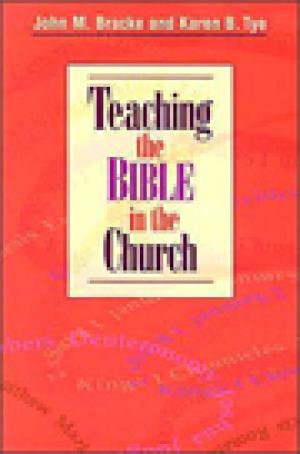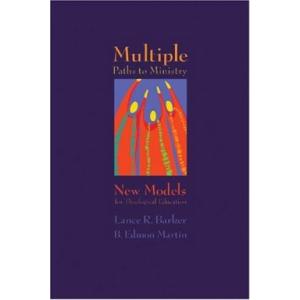Resources
This paper uses the language of Vodou doctrine to articulate its key tenets and speak to how the challenge of plurality or diversity in the twenty-first century has been and continues to be addressed among African and Afro Atlantic spiritual leadership. Following the slave trade and colonialism's aftermath, a pluralistic vision, reflecting the harsh new global order, permitted spiritual sustainability by reconfiguring African ontologisms. Embracing pluralism through annexation of non-native spiritual practices augmented the power of African rulers, providing them with other epistemes and access to spiritual forces they believed enhanced their position. The issue of preparing for the priesthood in a global or pluralistic society is examined in this essay through the historical and metaphysical framework that shaped the making of our societies.
This article describes the transformation of Catholic theological education over the last fifty years from a highly defensive posture vis-à-vis other religions toward dialogical engagement with members of other religions and all persons of good will. Until Vatican II, most Catholic theologians and officials distrusted exploration of other religions as leading to a dilution of Catholic identity. Vatican II condemned anti-Semitism and called for dialogue among religions in pursuit of common values. Since the Council, there have been developments in interfaith education on three levels: religious studies, comparative theology, and inter-religious practice.
This essay traces the development of the Zarathushtrian (Zoroastrian) priesthood from the time of the prophet Zarathushtra, through the Median priestly tribe as Magi, and the Macedonian and Arab invasions. This sets the stage for the separation of the Zarathushti priesthood between Iran and India and the generation of independent training methods. Centuries later dialogue between the two groups revealed some remarkable differences due to diverse cultural influences. From the eighteenth to the twentieth century there is a loss of respect for the priestly class and organization by the community of learning institutions to revamp the priestly training. The last portion of the paper discusses factors that affect the training of priests in North America. Some recommendations are put forward to adapt the training of the priesthood in the changing world society, and how these ideas can be brought to reality.
Educating and training Muslim men and women leaders who are capable of effectively navigating the multi-ethnic and multi-religious terrain in America – particularly in the post 9–11 milieu – requires the development of a new critical American Muslim pedagogy. This new pedagogy, centered in Islamic epistemology and ontology, should selectively appropriate the best of traditional Muslim educational paradigms and modalities used over time. However, the traditional Muslim model must not be reified, but rather be subjected to a sharp critique which maintains the richness of its spiritual and intellectual legacy but rejects teachings and interpretations used to create false dichotomies resulting in binary constructs, particularly those which pit Muslims against the west. Finally, the new critical American Muslim pedagogy must embrace all of the best discursive practices (e.g., pedagogies of Freire and others) that engage us in a critical analysis of the way in which power and privilege, even in religious communities, operate to marginalize and suppress women, minorities, and people of color.

John Bracke and Karen Tye, a biblical scholar and a religious educator, have come together to offer a vital new work of practical insight into the task of teaching the Bible in the church. Intended for pastors, church educators, lay teachers, and those in seminary, this book provides a blueprint for effective teaching that lead beyond just conveying information to opening oneself and the learner to transformation through the text. It is teaching the Bible in its most faithful form, as an invitation to fully encounter the scriptures and the God who empowers transformation. (From the Publisher)

Aging Education provides educators in aging studies with a unique text that responds to the paucity of instructional strategies and teaching materials. By developing and explaining a multidisciplinary approach to working with older adults in areas related to health, education, ethics, law, cultural competency for a multicultural population, translating social policy into practice, spirituality, and human services, the editors provide an imaginative and thought-provoking unmet need for gerontology educators by providing them with teaching and practice strategies in aging education. (From the Publisher)

Christians are of two minds about excellence. We commend excellent teaching, seek out excellent health care, and celebrate excellence in the arts. When a Christian life of congregation is described as excellent, however, we are suspicious that achievement, ambition or success may get the best of us. Cultural standards of excellence may turn out to be Christian stumbling blocks. "Resurrecting Excellence" urges Christians to reclaim their distinctive understanding and emphasis on excellence: an unselfish ambition for the gospel. The life death and resurrection of Jesus are both the basis and the goal of our summons to excellence. Drawing on ancient traditions as well as contemporary voices, the authors -- a divinity school dean and a parish pastor -- offer both a theology of excellence and compelling portraits of pastors, lay leader, congregations, and judicatories who embody "a more excellent way." Excellence in Christian ministry requires the capacity for measuring life by the complexities of judgment and grace as well as budgets and buildings. "Resurrecting Excellence" commends this beautiful and challenging task to all with a heart and mind for the excellence of God. (From the Publisher)

Pastoral ministry is an occupation in flux. In this comprehensive study Jackson Carroll considers the many factors — changing roles among clergy and laypeople, the opening of ordination to women, an increasing shortage of clergy, and more — that are shaping congregations and ministers today. Building on Paul’s image of Christians as “clay jars,” Carroll paints a portrait of “God’s potters” — pastors whose calling is to form their congregational jars so that they reveal rather than hide God’s treasure. A veteran clergy watcher, Carroll uses data from what is likely the most representative survey of Protestant and Catholic clergy ever undertaken, as well as focus group interviews and congregational responses, to take a hard look at who is doing ministry today, what it involves, and how pastors are faring in leading their congregations. Significantly, his study covers clergy from a broad range of traditions — Catholic, mainline Protestant, conservative Protestant, and historic black churches. Replete with pertinent tables and figures, God’s Potters culminates with specific strategies for strengthening pastoral leadership and nurturing excellence in ministry. (From the Publisher)

In a rapidly changing congregational and professional environment, how will churches and their institutions of theological education prepare ministers for diverse contexts? Barker and Martin affirm the theological school's continued role yet claim that American Protestantism can no longer rely on graduate theological schools as the sole educational institutions charged with providing curricula for theological study related to ministerial preparation. To support their thesis, the authors researched the graduate theological education programs of The Episcopal Church, the Evangelical Lutheran Church in America, the Presbyterian Church (USA), the United Church of Christ, the United Church of Canada, and The United Methodist Church; and compiled essays that show powerful new models for successful ministry preparation. Contributors: Janet Silman, Carol Bell, Isaac McDonald, Richard Sales, Bert Affleck, Minka Shura Sprague, Glenn Miller, Ken McFayden, and Thomas Ray. (From the Publisher)